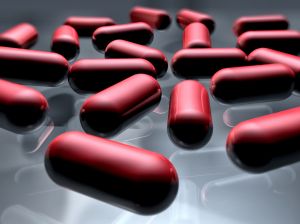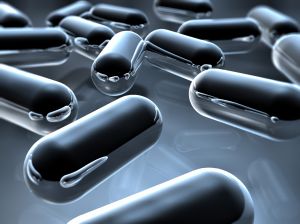Antibiotics vs. Probiotics: The Neverending War of Bacteria ......
Antibiotics vs. Probiotics: The Neverending War of Bacteria / Will Biotechnology Be the Salvation of Livestock Farms?
Recently, there has been much said about the functional food, a food that have positive impact on our health. Thanks to the TV, almost everyone knows that the probiotic food helps to preserve the intestinal bacterial microflora and boosts the natural defense of the organism. No less often we are told that the antibiotics treatment is often unnecessary. The scientists are trying to do their best to alert the physicians about the potential negative effects, and the physicians take the whole issue more responsible than it used to be.
In order to the campaign against antibiotics overuse being effective, it is necessary to ensure that the antibiotics do not enter the system from eating animal-originated food. The solution is again probiotics.The Neverending War of Bacteria
The words "probiotics" and "antibiotics" originate from Greek, and the mere translation of their meaning - "for life" and "against life" clearly denote the crucial difference in their effect. Whereas the antibiotics suppress and kill the harmful bacteria (and along with them the helpful ones), probiotics are living organisms that are capable of colonizing the intestines after being ingested, with a positive effect on human health. Mostly, these bacteria are bacteria of lactic fermentation (bifidobacteria, lactobacilles), but also some cocci (Enterococus faecium, Streptococus termophilus), and several species of yeast capable of stimulating the immunity mechanisms, producing antimicrobial substances and affect the metabolism in positive way - among others the production of vitamins, digestion process efficiency or lactose procession.

A healthy man's body is inhabited by a large number of microorganisms. The most of them can be found in the colon, as the so-called intestinal microflora. The total weight of these bacteria in an adult human is more than 1 kg, even though one gram of the microflora contains more bacteria than the number of humans on Earth. There are several hundreds of species, either helpful or potentially harmful, that can cause diarrhoea, abundance of rotting processes or production of toxic or cancerogenous substances.
Probiotics - Necessity or a Marketing Trick?
By eating probiotic food supplements, we are reinforcing the position of the helpful microorganisms, that are permanenty fighting the harmful ones for the control over the colon membrane. The importance of probiotics supplements is even higher in case of undergoing a diarrhoea or an antibiotics treatment. The balance can, however be upset and the harmful bacteria can prevail also as a result of bad eating habits and lack of fibre in the food. This has usually leads to immunity mechanisms failing. Functional food that contain probiotics can therefore be recommended to all people, excluding only those eith cow milk allergy. The probiotic bacteria definitely cannot harm the body and fermented milj products are valuable source ot calcium and proteins. The beneficial effects of yoghurts and kefirs are known for centuries - it's just the current advertising industry that creates the image of a probiotics as a health lifestyle blockbuster, a hot discovery you cannot live without. In fact, the most expensive products with the highest probiotic bacteria content are really needed only in a case when the bacterial microflora was greatly harmed, e.g in case of antibiotics treatment. Otherwise, according to the experts, any yoghurts or fermented milk products are sufficient, especially those without sugar, sweeteners or artificial colors. They are recommended especially to the elder people, whose lack of probiotic strains in the microflora comes naturally with old age.

The probiotics are one of the longevity factors, but they are not
self-redeemable, of course. In order to ensure their efficiency, we have to
change our eating habits - increase the ratio of food and vegetables in our
food, eat more fibre, decrease the ratio of animal fats, avoid trans-fatty
acids, etc. In concert, one must remember to practise physical activities, to
keep his or her weight, not to smoke,
not to drink alcohol in more than small doses, to manage stress and to know to
relax.
Will Biotechnology Be the Salvation of Livestock Farms?
There is no doubt about positive effects of using chosen microbial cultures (probiotics) and other bioproducts (immunoglobulines) in human nutrition and medicine. Similarly, the biotechnologies are successfully applied in nutrition and breeding of livestock. However, the biotechnologies are finding their way into the fodder industry and practice only slowly. We have interviewed Dr. Petr Mičan, director of the Medipharm CZ, Ltd., company, that focuses on utilization of modern biotechnological approaches in the agriculture and food industry, as well as human and veterinary medicine.Where is the branch of research heading? Do you think that the biopreparatives used now are going to be used in ten or twenty years' time since now? Or they will be replaced by something brand new?
Asking about the direction of heading is very tricky in the biotechnology. It is apparent that prebiotics, probiotics and synbiotics are more or less mere replicas of the initial idea. We can hardly anticipate any new real "breakthrough".
The approach taken by some company laboratories and biological research technocrats invokes sometimes fear. Some of them are behaving according to the "well-known" motto of "We are the rulers of wind and rain..." They are trying to modify genetically some of the natural bacteria, claiming to try to improve their productive capabilities in practical use (bacteriological war?). For example, the attempts of implanting the celulase-coding gen into silage lactobacteria were made as soon as in the beginning of 90's. Fortunately, the wise "Mother Nature" objected and the gene was eliminated in the very first generation.
As for me, I can only hope that probiotics, as well as immunoglobulines, will be used correctly and for a long time.
Allow me a last question. In the future, will the use of natural defense-reinforcing preparatives be enough, or will it be necessary to fundamentally change the conditions in the current livestock breeding farms?
In my opinion, the important problems will be posed by the adaptation and natural defense of the animals. The breeders are focusing too much in one direction - they select the animals with highest ratio of efficiency and they pay no heed to their ability to adapt to the breeding conditions, nor their resistance to common diseases. Even in the future, all problems will not be solvable solely by using the biotechnologies in nutrition and treatment. We have to cope with genetically-based problems and improve the breeding conditions. The biotechnologies would thus be only the helping hand, not the solution.
|
|
